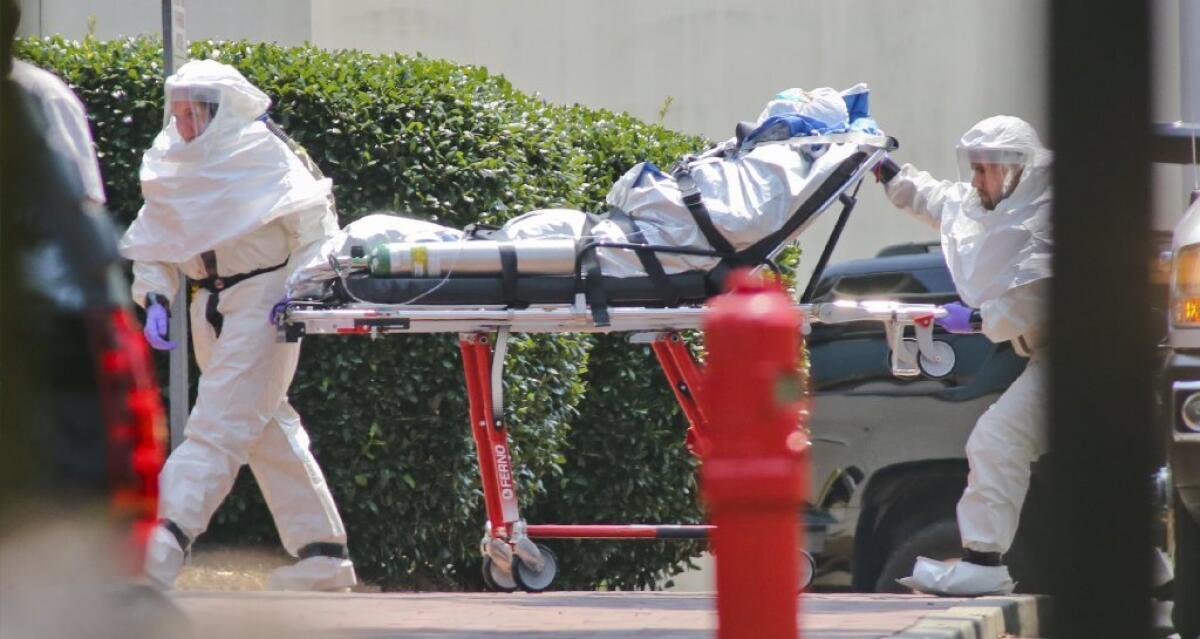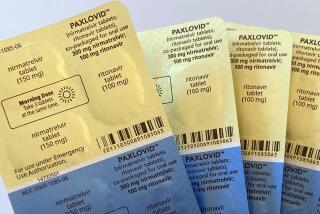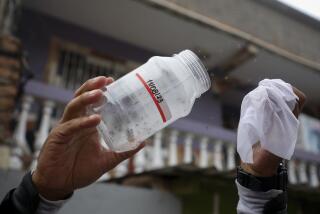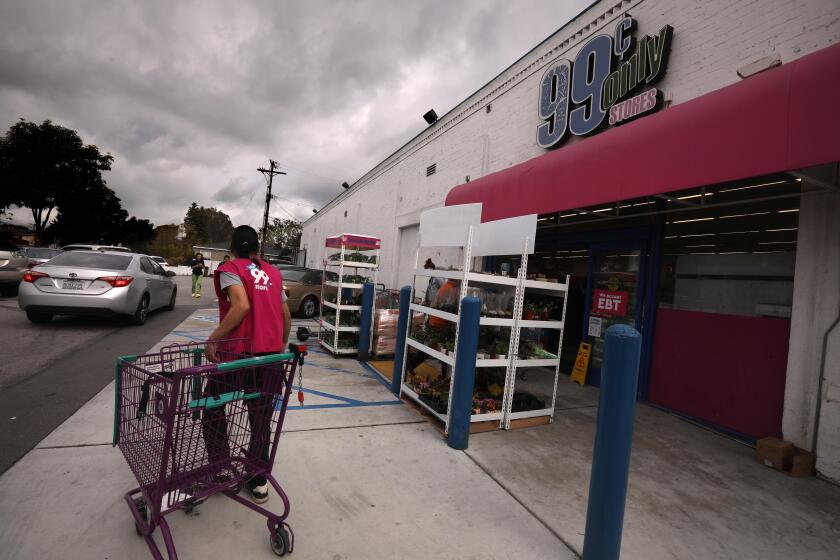Opinion: Why should two white missionaries get the first Ebola treatments?

Two American missionary medical workers stricken by Ebola in Liberia were the first to receive a scarce, experimental treatment drug.
And now the question ricochets across the Internet: “Why them?” With more than 1,000 dead and hundreds afflicted in Africa, why would two white Americans about to be airlifted back to medical isolation in Atlanta get the first doses?
It’s an important question, and it deserves answers from the drug makers who supplied it and the charity that asked for it. But here’s my take on why it makes sense.
An experimental drug isn’t a cure, it’s a crapshoot. I don’t think the treatment was made available only for the possible benefit of those who got it. That’s because the medical missionaries are not just patients, they are human lab mice.
This treatment isn’t just about perhaps saving the lives of the two who got it. What happens to them will allow researchers to make some assessment of the safety and effectiveness of what is otherwise a long way from being OKed for human trials.
To do that, you need at least some of the rigors of science. In this instance, the researchers have two subjects whose medical histories are well known. How and when they were exposed to Ebola, the kind and quality of food and water available to them — that knowledge can help researchers factor in or out medical and health particulars in a way that might not have been possible with random Ebola patients.
Giving the drug to these two patients can’t offer definitive proof. But because they’re now in a kind of medical “chain of custody” isolation in Atlanta, monitored under rigorously controlled conditions, that helps researchers to compile the best possible data to take back to their labs to work on a vaccine.
Moreover, these two patients are medically knowledgeable, so they can — if they are conscious — report their reactions and conditions with clinical detail and clarity.
I expect, I hope, they both understood all of this when they agreed to get the drug. And self-experimentation isn’t unknown in medicine, from yellow fever researchers at Walter Reed Army hospital more than a century ago, to the Australian scientist who dosed himself with a Petri dish full of ulcer bacteria when he wasn’t allowed to use humans to check his theory that bacteria causes peptic ulcers. He lived to win the Nobel Prize.
Sociologist Amy Kaler commented on a Washington Post blog that “the situation in West Africa is not a research situation, it’s more analogous to an emergency ward or a disaster zone,” and the debate over this “conflates research ethics with treatment ethics.”
The World Health Organization has since decided that under some circumstances, such as getting informed consent, the same drug the medical missionaries got, along with other experimental Ebola drugs and vaccines, can be sent to Africa even though their safety and efficacy hasn’t been tested. Canada is making 1,000 doses available.
The decision to start with the two Americans was a difficult choice, and from where it stands now, the right one.
Follow Patt Morrison on Twitter @pattmlatimes
More to Read
A cure for the common opinion
Get thought-provoking perspectives with our weekly newsletter.
You may occasionally receive promotional content from the Los Angeles Times.







